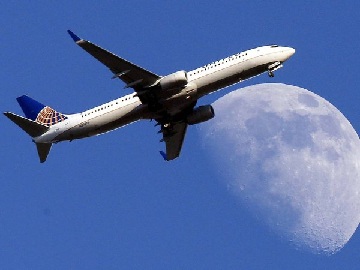A security researcher has told federal agents he was able to hack into aircraft computer systems mid-flight numerous times through the in-flight entertainment systems, and at one point he caused a plane he was on to move sideways, according to an FBI agent’s affidavit. Although the claims are still being investigated, the airline involved, United, cast doubt on whether it was possible to control an airplane through the entertainment system, while other experts said such cyber threats should be taken seriously given that airplanes are increasingly connected to the Internet.
The researcher, Chris Roberts, had suggested on Twitter while on a United Airlines flight from Chicago that he could get the oxygen masks to deploy or interfere with the cockpit’s alert systems, according to the court filing in support of a search warrant for Roberts’ laptop and other electronics.
Roberts founded One World Labs, which tries to discover security risks before they are exploited. He had met previously, in February and March, with the FBI to discuss vulnerabilities with in-flight entertainment systems aboard certain aircraft, the affidavit said. During the meetings, Roberts claimed to have compromised the systems 15 to 20 times between 2011 and 2014, using a cable to connect his laptop to an electronics box located beneath passenger seats, the document said.
“He stated that he thereby caused one of the airplane engines to climb resulting in a lateral or sideways movement of the plane during one of these flights,” the affidavit said.
A report by the U.S. Government Accountability Office last month said some commercial aircraft may be vulnerable to hacking over their onboard wireless networks. “Modern aircraft are increasingly connected to the Internet. This interconnectedness can potentially provide unauthorized remote access to aircraft avionics systems,” the report said. The fact that passengers on flights with in-seat video monitors can shift between television and a map showing the plane’s real-time location indicates a link between the flight control and passenger entertainment networks, said Steven Bellovin, a computer science professor at Columbia University. And airplanes that offer Wi-Fi are likely using the same data link used by pilots to communicate with the airline, he said.








